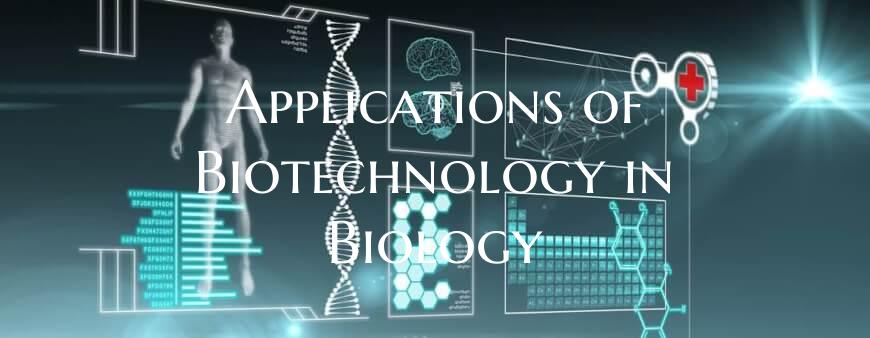Applications of Biotechnology in Biology
Biotechnology has revolutionized the field of biology by offering new tools, techniques, and processes to explore, understand, and manipulate living organisms at the molecular level. This interdisciplinary field involves the application of biological knowledge and principles to develop innovative solutions for various industries and scientific purposes. Here are some key applications of biotechnology in biology:
1. Genetic Engineering: Biotechnology plays a crucial role in genetic engineering, allowing scientists to modify the genetic makeup of organisms for various purposes. This includes the creation of genetically modified organisms (GMOs) for agriculture, gene therapy for treating genetic disorders, and the production of therapeutic proteins like insulin through recombinant DNA technology.
2. Biopharmaceuticals: Biotechnology has enabled the development of biopharmaceuticals, which are drugs produced using living organisms or their components. These include vaccines, monoclonal antibodies, and hormones that are used for medical purposes such as disease treatment and prevention.
3. Environmental Biotechnology: Biotechnology offers sustainable solutions for environmental challenges, such as bioremediation, which uses microorganisms to clean up pollutants from soil and water. Biotechnological approaches are also used in waste management, renewable energy production, and conservation biology.
4. Diagnostic Tools: Biotechnology has enhanced the efficiency and accuracy of diagnostic tools used in healthcare and research. Techniques like polymerase chain reaction (PCR) and gene sequencing have revolutionized genetic testing, disease diagnosis, and forensic analysis.
5. Bioinformatics: The field of bioinformatics combines biology, computer science, and information technology to analyze and interpret biological data. It plays a vital role in genomics, proteomics, and other omics disciplines by organizing, storing, and analyzing vast amounts of biological information.
6. Agricultural Biotechnology: In agriculture, biotechnology has led to the development of genetically modified crops with traits such as pest resistance, drought tolerance, and increased nutritional value. These crops have the potential to enhance food security, improve crop yields, and reduce the environmental impact of farming practices.
7. Bioprocessing: Bioprocessing involves the use of biological systems or living organisms to produce valuable products on an industrial scale. This includes the production of antibiotics, enzymes, biofuels, and other biobased materials using fermentation and other biotechnological methods.
Overall, the applications of biotechnology in biology are vast and diverse, offering promising solutions to global challenges in healthcare, agriculture, environmental sustainability, and beyond. As technology continues to advance, the potential for biotechnology to drive innovative discoveries and improvements in various biological fields remains significant.

